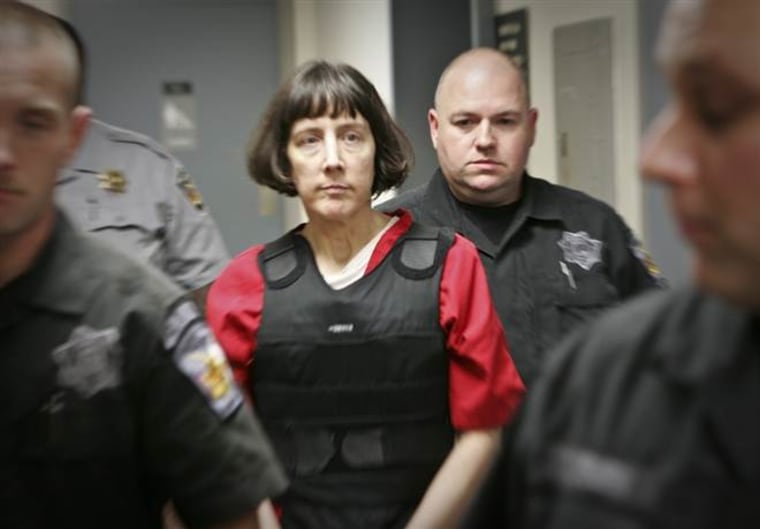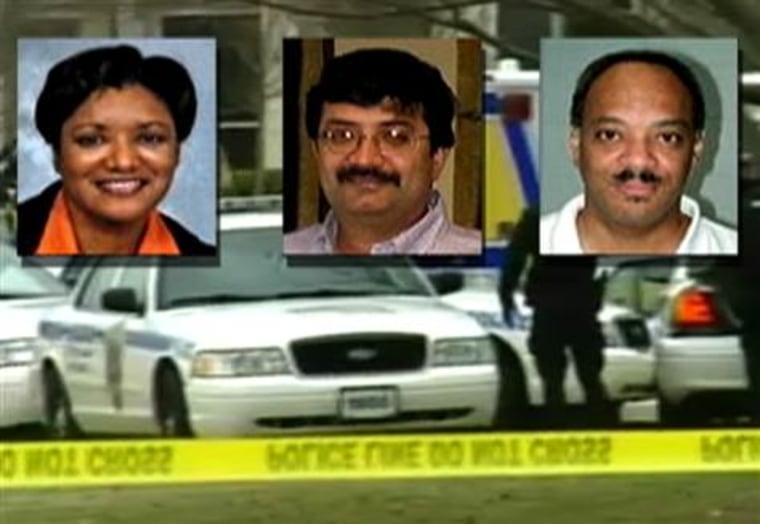Amy Bishop, the biology professor who pleaded guilty to killing three colleagues and wounding three others when she shot up a University of Alabama-Huntsville faculty meeting in 2010, has apologized for the first time.

Bishop, 50, who'd been denied tenure, was sentenced to life in prison in exchange for her guilty plea, but since then, she has launched several appeals claiming she was mentally ill and didn't know what she was doing.
In a new 50-page court filing obtained Monday by NBC station WAFF of Huntsville and The Huntsville Times, Bishop included a handwritten note referring to the shootings as a "terrible crime" and saying she was "terribly sorry for the victims and their families, and my family."
She then argues that her trial and appellate lawyers were inadequate.
Bishop, a Harvard-trained neurobiologist and mother of four, opened fire with a 9 mm pistol during a department meeting on Feb. 12, 2010.
Biology professors Maria Ragland Davis and Adriel Johnson and department Chairman Gopi K. Podila were killed. Two other professors and a staff assistant were wounded.
Related: Dateline NBC: Deadly Ambition

Bishop has since reconsidered her guilty plea, filing numerous court documents complaining about her lawyers and saying she was mentally ill at the time she entered the plea, blaming schizophrenia, allergies and steroids.
One of the surviving victims, Joseph Leahy, a microbiology professor who was shot in the head, rejected Bishop's apology.
"Dr. Bishop has ceased to exist in my world. She just doesn't exist anymore," Leahy, who suffered a tyaumatic brain injury and is now blind in one eye, told WAFF.
"Do I think she’s truly sorry?" Leahy asked. "I think she truly wants to get out of prison. That's what I think."
The 2010 shootings — which drew intense news coverage — weren't the first time Bishop had been connected to a fatal shooting. In 1986, Bishop, then 20, shot and killed her 18-year-old brother at their home in Braintree, Massachusetts.
Authorities concluded that shooting was an accident and released Bishop. After the Alabama shootings, prosecutors reopened that case and concluded that there was probable cause to believe Bishop had committed a crime, but they had to drop the case because the statute of limitations had expired.
